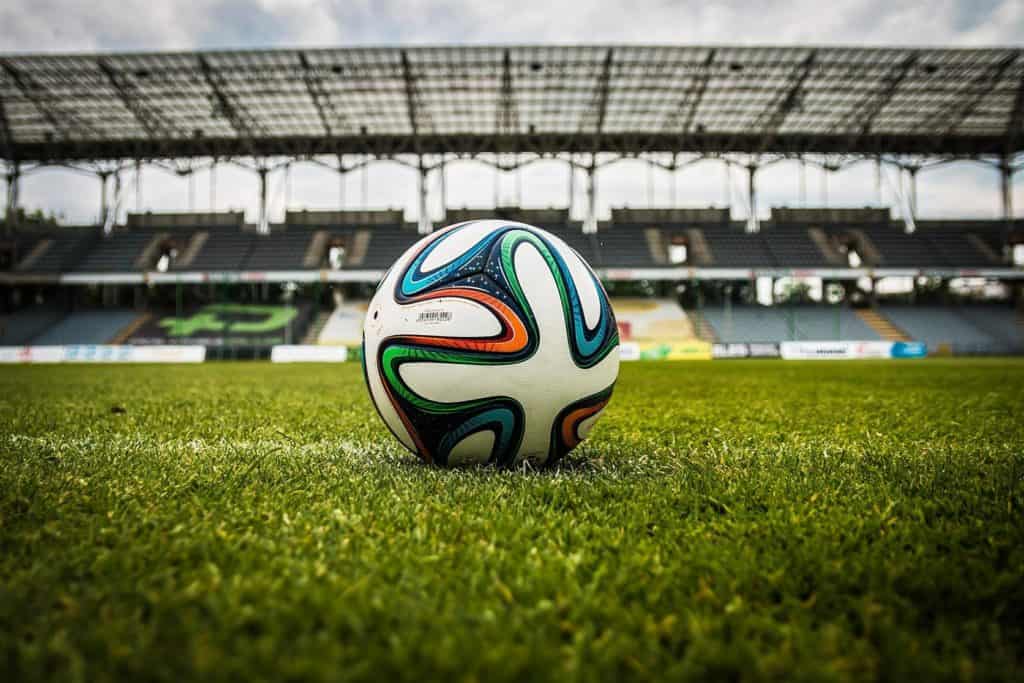“This post is written by a football coach whose lifelong dream was to play professional football. This is his story about losing the one thing you have worked towards all of your life, and how that impacts mental health and wellbeing.”
“The hardest time in a person’s life is when they face death. The hardest time in a footballer’s life is when he faces having to give the game away’’

It’s rare that player’s give up. It can be a decision made for them and probably will be. The lucky players will choose their destiny but more often it will be the judgment made by their club. The decision of a doctor, medical staff, manager or coach and it’s someone’s task to tell them their time is up, the final whistle has blown. From that moment, the professional footballer is expected to let go and show no emotions, but how can they?
This is a footballer’s life, trading the glories for the memories that can only be described as a cruel ending. The recently retired or put on the career-ending injury list, find it really emotional.
The realities of waking up every morning, thinking what are the players doing at training today? The current model footballer, prepared for the approaching season. Just a few months ago, there was togetherness, in the group for which he belonged. Now life seems off track, vague and having no direction.
Often there is very little real empathy for the ex-players and some would say it is simply unfair. In all of the idolization, there is also envy and resentment by those who enjoy the revenge the sport has had on the ex-footballer.
They struggle to find a life after and beyond the game. This can leave the player vulnerable alone and too proud to admit it and share their emotional feelings. A player may have been described as a “Gladiator” figure in the football arena but now just a shadow of their former self to thousands of supporters.
Being a footballer isn’t just something to do, it is a lifestyle and something to be. You love it and if good at it, nothing else can matter in life. They’ve devoted everything since childhood to getting physically fit, stronger to fight against the best players locally, globally and improving holistically.
When the last ball is kicked, the players are expected to transition into life after football before they’ve unstrapped their ankles, knees, and shoulders from the game they just finished for the last time.
Many ex-footballers transition from the football life to life after football. This requires mental strength, dealing with all kinds of emotions often on their own with little or no support. The people that do try to support you have the best intentions but possibly don’t understand or haven’t experienced how it really feels.
The first emotion is likely to be one of denial and as much as most will not admit it, there is also anger. There is a sense of injustice that their body or club has betrayed them.
There may also be some bargaining to seek one last moment, to run out one more time. The sadness or depression sinks in that it is over. Then the reality really sets in. There will be a vast array of emotions, A-Z in psychology terms. The goal missed, the money they never saved but also the selfish responses and unformed relationships, realising too late the opportunities lost in their whirlwind career in the game.
Now for the next phase, the “real world” as it is described. The now former footballer’s world is not the same. They’ve always been made to feel as though they’re different. As a teenager they were given a special diet and exercise programme they’re expected to follow whilst their mates were eating pizza after a big night on the beer.
Some people around them sacrificed their lives for his. They lived their lives in the player’s body. Players may have been given a privileged school education, missing exams and given whatever is needed to shine above the other students.
At so many levels the footballer receives the most extraordinary education and learning, underestimated outside of the sport, most of which can be taken into life after football. These contain the daily disciplines and the willingness to compete at an elite level.
The selflessness required, playing their role in a team environment, to lead and bounce back from setbacks, failure and disappointment. In a game of heroics, learning to take as few gambles along the way, but making as few mistakes as possible and having the confidence to take educated risks when required.
In professional clubs, footballers soon work it out from the good and bad experiences. The young players grow up fast and age slowly, but age they will. The game they love will eventually wear them out. It will kill off some along the development pathway, some never to be seen again.
There is always a lot of talk about the culture of elite football teams and clubs, often from people who have never been in the environment. Opinions are thrown around the stadiums and training grounds. Careers are decided at the selection and negotiation tables at all the clubs for whatever reason.
You are valued, a commodity whilst you produce what is required of you, until someone quicker, bigger, more technically gifted and younger, cheaper or less of a problem becomes available. Then you are replaced. It is a game played in a big transit lounge for transfers/ trading in and out. It is an international commodities market in trading professional players.
Players know this and they talk about it amongst themselves. Agents are heavily involved and get their slice of the action in any trades done. Big money transactions, businesses are all part of the modern game and the players, clubs even agents daily existence. A week after seeing off a tearful teammate, they are shaking hands with the next generation of potential superstars, sizing them up, hoping they can help them win trophies and bonuses, but also wondering whether they will take their place.
Post career, footballers are required to pick up the remnants of many things, including relationships and family. The player may have moved away from friends and family in their teens, following the dream of stardom.
Partners may have come and gone, have to deal with mood swings and the selfishness the game brings/ demands upon a family. Things don’t always go smoothly and testing times are always evident in the family and even more difficult when children are involved.
Initially there may be support from those who surrounded them during the successful times or glory days in the game. This support may fade unless mutual respect remains in the relationship, which is rare.
I have heard people talking about ex-players’ loss of identity. They need to align it to something other than their sport. But it is far more complex than this. Many former players cringe at the identity they forged whilst in the game. The things they did to fit in, hide weaknesses and vulnerabilities for fear of being judged in career limiting ways and to survive in a comfortable lifestyle.
We know this identity outlives their time in the game even though it didn’t represent the man then and certainly not the man they are now.
There is light at the end of the tunnel, which you can only understand in retirement and experienced it through talking with colleagues. We are reminded of this often but part of the player will always be on the pitch on game day. This is something to be proud of. “You can take the boy out of the environment but the environment never comes out of the boy”. This is not a standard from which life should be measured or how players should be judged.
I have taken my time to write this as I think people don’t realise how hard life can be. Hopefully this opens you, the readers’ mind to situations or experiences that most players will relate to but the general person in the street has no idea about. Yes, you may say that playing football is a choice. You get involved as a young lad and go along the football pathway. The player selected this as a career, yes! You get in deeper and deeper making a living along the journey. Unfortunately no players are like Peter Pan (some may need to google him) and hopefully there are more players that live happily ever after, rather than down and out with no direction in life after football.
IG – Football Coach



